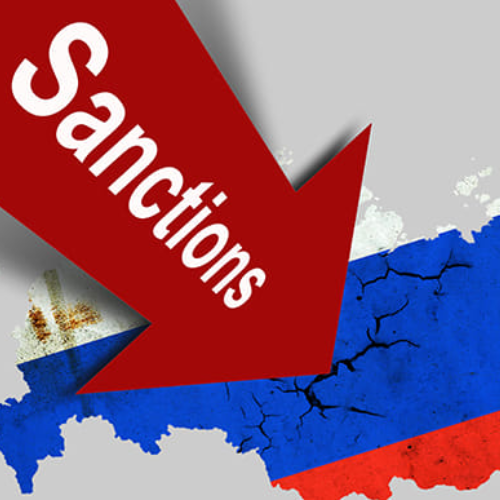The European Union (EU) has taken a strong step against Russia by adopting its 17th sanctions package. These sanctions are designed to make it much harder and more expensive for Russia to keep fighting its war against Ukraine. The EU’s goal is clear: to cut off the money and technology that Russia needs to support its military actions. This latest package adds even more pressure on Russia’s already weak and struggling economy.
What’s in the 17th Sanctions Package?
This new sanctions package targets many areas connected to Russia’s war effort. One of the main focuses is on stopping Russia from making money through oil sales. Russia uses a large number of ships, called the “shadow fleet,” to transport oil. These ships often try to avoid rules and price limits set by the international community. The EU has now added 189 more vessels to its blacklist. These ships are banned from entering EU ports and can no longer receive services in EU countries.
In total, there are now 342 vessels on this list. This is the largest action ever taken by the Group of Seven (G7) countries, which include the world’s richest nations. Because of these rules, Russia is finding it much harder to sell its oil. The amount of oil moved by these ships has dropped by 76%.
The sanctions also name 31 companies that help Russia’s military or try to get around the sanctions. These companies come from Russia itself and several other countries, including Turkey, Vietnam, and the United Arab Emirates.
Who Else is Targeted?
Besides ships and companies, the EU has added 75 new people and groups to its sanctions list. This includes 17 individuals and 58 organizations that support Russia’s military or take part in illegal actions in occupied parts of Ukraine. Those listed now have their money frozen, cannot travel to the EU, and are banned from using economic resources within EU countries.
The list includes companies involved in Russia’s military and defense industries. One shipping company is also added because it helps generate money for Russia’s war. The sanctions even target people who steal cultural treasures from areas under Russian control.
Cutting Off Technology and Extending Oil Exceptions
The EU is also stopping Russia from getting important technologies. These include chemicals used to make missiles and parts for advanced machines that are needed in military factories. Some of these chemicals are things like sodium chlorate and aluminum powder, which help power weapons. Other parts, such as special screws and sensors used in precise machine tools, are also blocked.
By restricting these materials, the EU hopes to make it harder for Russia to build weapons or keep its military machines running.
Trump Rejects Harsh Russian Sanctions as Chance for Peace Emerges
There is one exception in this sanctions package. The EU has allowed the continuation of a special rule for the Sakhalin-2 oil project in Russia. This exemption lets oil from Sakhalin-2 be shipped to Japan without following the usual oil price limits. The EU made this choice to help keep Japan’s energy supplies safe and secure. This exemption will last until June 28, 2026.
Impact of the Sanctions on Russia’s Economy
These sanctions are having a strong impact on Russia’s economy. Russia is now forced to sell its natural resources at lower prices, while it must pay more to buy what it needs. Inflation in Russia is very high, going over 10%, which means the cost of goods and services is rising fast for everyday people. The government’s budget is in trouble, with big deficits and very high interest rates. Russia has even used a large part of its savings fund to try to keep its economy afloat.
Thanks to the EU and other rich countries working together, Russia’s income from oil and gas has dropped from 100 billion euros in 2022 to only 22 billion euros in 2024. This is a huge drop, almost 80% less than before the war started.
Because of trade bans, Russia also cannot get many of the machines and electronics it needs to keep its factories running, especially those related to military production. The country has lost over 60% of the trade it used to have with the EU before the war began.


